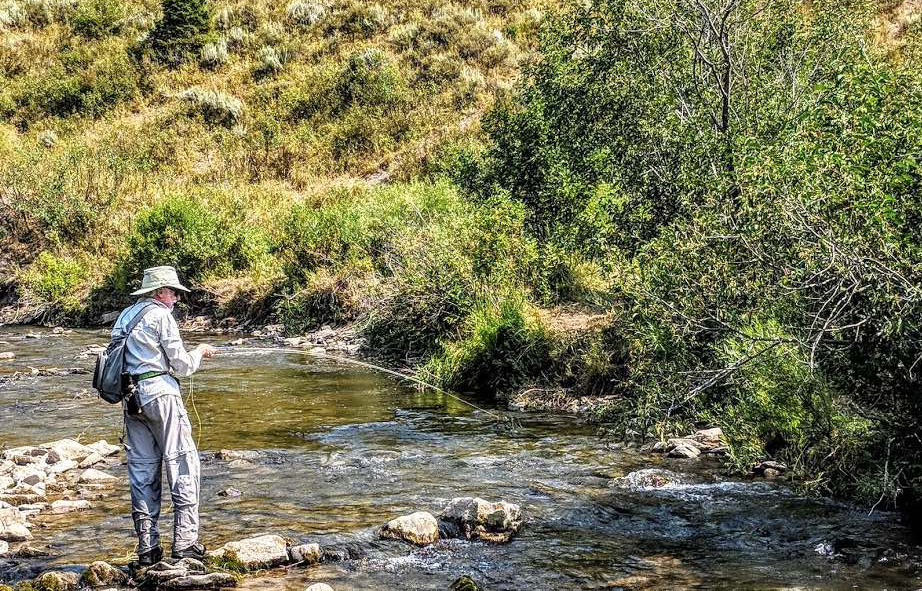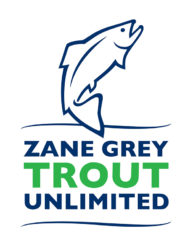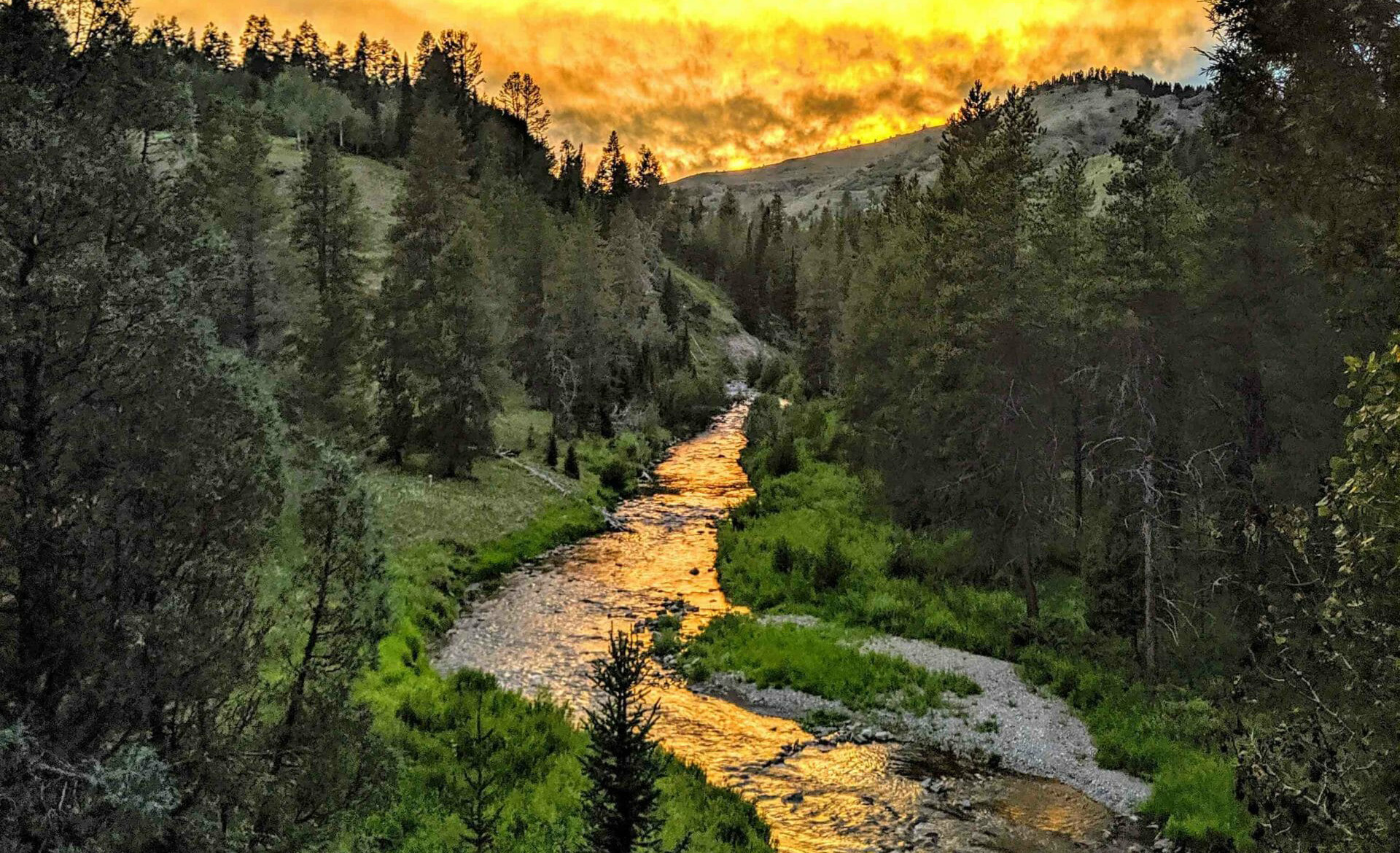Admittedly, things are moving fast and my own opinions have evolved quite a bit in the past several days especially. But one thing that really sticks out and absolutely warms my heart is the sheer class and integrity of the many people in fly fishing with whom I have talked this issue through. We are definitely a community, and we are in it for the long haul. There will be another side of all this, and fly fishing will be just as cool, captivating and interesting on that other side as it was before … maybe even more appreciated. Keep the faith.
That said, I cannot count how many times in recent days I have been asked: “Should we be fishing ourselves, and should we be encouraging others to fish?”
I’m not brave enough to answer those questions myself. So the first thing I did was reach out through my co-editor of Angling Trade, Tim Romano, to ask an ER physician—and avid angler—Dr. Cliff Watts. Dr Watts started working in the emergency department in 1974. After completing an Emergency Medicine Residency in Charlotte, N.C., he moved to Boulder, Colo., in 1978. After many years in the Boulder Community Hospital Emergency Department, and a few years as Associate Faculty for the Denver General Emergency Medicine Residency program, and 10 years as physician advisor for over 16 volunteer EMS agencies, he ended his active career at Boulder Medical Center Urgent Care in late 2013.
Having caught his first fish at age 5, he has fished around the world from the Arctic to Patagonia, from the Kola Peninsula to Tibet. He still spends much of time helping people in need of medical information, travel questions, fishing information concerning gear and destinations, taking kids fishing, as well as having a spey rod in his hands while standing in flowing water.
We hit him with five straightforward questions, so here they are, with his responses.
1. Is it okay to fish in a “lockdown” or “shelter in place” state? If I am completely alone, get in my vehicle, get out and fish, never encounter another human within six feet or more, and have a healthy (at least mentally) escape, is that cool?
Yes, I believe that is very safe. If you are alone, the gas pump or the convenience store that you might visit on the trip is probably the most potent risk of exposure or transmission. Not the water. Not the fish. But I am unsure about ( different states’) regulations.
2. What is the max distance one should travel to fish? Are we talking about “walk to fish?” or is it okay to drive an hour to the river if part of the isolation appeal is to keep people off the roads entirely?
I do not think driving will increase your risk or that of others as long as you follow CDC guidelines. See: https://www.cdc.gov/coronavirus/2019-ncov/prepare/prevention.html Now, if you feel sick or later get sick, going too far might lead to a difficult return home.
3. How about a boat? Like a drift boat… is there any way you see a fishing boat being a safe “socially distanced” scenario?
Most drift boats mandate the rower and the fisherperson to be less than six feet apart. The person downwind of a sneeze, or a spit, would be vulnerable to “droplets” and hence there could be a significant potential to spread any virus.
4. Assuming I can go fish, and I buy a dozen flies and a spool of tippet from my favorite fly shop (online, sent to me through the mail, or they leave it out the door), do I have to disinfect those flies and tippet somehow, and if so what is the best way to do that?
According to a recent study published in the New England Journal of Medicine, SARS-CoV-2, the virus that causes COVID-19, can live in the air and on surfaces between several hours and several days. The study found that the virus is viable for up to 72 hours on plastics, 48 hours on stainless steel, 24 hours on cardboard, and 4 hours on copper. But the actual viral load decreases rapidly on most of these surfaces. Cleaning surfaces with disinfectant or soap is very effective because once the oily surface coat of the virus is disabled, the virus should not be able to infect a host cell. The facts and science change daily. I do believe soaking anything in 91-percent isopropyl alcohol or 80-percent ethanol (real moonshine) for one minute would kill any virus on a fly or tippet materials, but this might affect those materials. Letting any of these fishing materials just sit for 72 hours, should certainly make them virus free. I would not hold fresh flies or tippets with your lips until you do so.
5. Is the virus transmitted through water?
According to the CDC, there is no evidence that COVID-19 can be spread to humans through the use of pools and hot tubs. The virus has been detected in patient’s feces, but I doubt that the virus has significant presence or danger as far as fishing waters in North America.

Fishing alone is probably OK, but stay close to home so as not to put anyone else at risk if you need help, from, say, a flat tire or a slip-and-fall injury. Photo by Chris Hunt.
We are all in this leaky boat together. Please think about fishing, the river and the canyon. We are really going to need your support when this is all behind us. We are keeping all staff on payroll so we will all be here for you when the time is right. Words cannot express how much we are looking forward to shaking your hand and telling you in person how greatly we appreciate seeing you back at Lees Ferry. In the meantime, be safe and healthy.
—Terry Gunn, fishing guide from Lee’s Ferry, Ariz.
Fly shops… manufacturers and commerce…. Well, suffice it to say that the very foundation of my professional life is encouraging people to get out and fish, and more specifically, to send them to fly shops so they can buy stuff manufacturers produce. I’m still all-in on encouraging e-commerce, and innovative ways of getting consumers product and information. But there’s no sugarcoating the fact that we’re all going to take a big economic kick in the shins, from manufacturers where the layoffs have already started, to shuttered fly shops… to magazines and digital media (we’re going to keep cranking because the thirst for distraction-type content has never been greater, but we don’t know how advertisers are going to pay us either). Guides… I absolutely love you like family, and the guide world is where my roots were sunk, going way back over 20 years to a little book called “Castwork.”
One of the guides in that book, Terry Gunn, proved to me today why he still remains a mentor and example for all of us. He sent this to his clients:
A resounding THANKS to you and all our customers! We have seen a lot together over the years — the stock bubble of 1999, the tragedy of 9/11, The Great Recession, government shutdowns … but nothing like this devastating virus and its consequences.
Arizona Gov. Douglas Ducey has ordered a statewide shutdown. Under certain conditions, Lees Ferry Anglers, Cliff Dwellers Lodge and Kayak Horseshoe Bend might remain open, continue operations and go fishing with the lodge open for guests. However, after careful consideration, we have decided the prudent and compassionate action for our staff and guests is to temporarily close all business operations as of 5 p.m. today.
We are cancelling all fishing trips, kayak launches, hotel and lodge operations until April 30, at which time we will reevaluate conditions and either reopen or extend our closure.
We are all in this leaky boat together. Please think about fishing, the river and the canyon. We are really going to need your support when this is all behind us. We are keeping all staff on payroll so we will all be here for you when the time is right. Words cannot express how much we are looking forward to shaking your hand and telling you in person how greatly we appreciate seeing you back at Lees Ferry. In the meantime, be safe and healthy.
That is exactly the right play. And I believe that this market, when it rebounds, which it surely will, will reward those who sacrifice for the greater good now. You can count on the fact that Angling Trade will.
One last point of punctuation. It’s just fishing. Sure, we hold it sacred, special, and it is part of all of us… but it’s a recreational activity. Think about the doctors and nurses and EMTs and others in New York City, and what their professional lives look like right now before you drive 100 miles to a river to get your Ya-Ya’s out, or load up your Instagram feed, or whatever, by pulling on a tiny animal through a graphite stick and a strand of monofilament… and then consider whether or not that’s an insult to people who are literally laying their lives on the line right now. Symbolically, if nothing else, solidarity means staying home.
In sum, Angling Trade’s position relative to that elephant in the room: Fishing is great, done alone, or with household members. We encourage hyper-local fishing, whenever possible. Social distancing is a must, and every angler should adhere to exactly what their state and the CDC advises, without question. We don’t think people should drive far to fish, and we don’t think guides and shops should invite people from affected urban areas to rural areas to fish. We encourage e-commerce, community and the broader exchange of information and ideas. We’re in it for the long haul, and lives matter most now. We’re going to throw our strongest support on the other side of this to those who act most responsibly now.
Be smart and safe, and protect yourselves and your families.
Kirk Deeter is the vice president and editor of TROUT Media. He lives and works near Denver.

